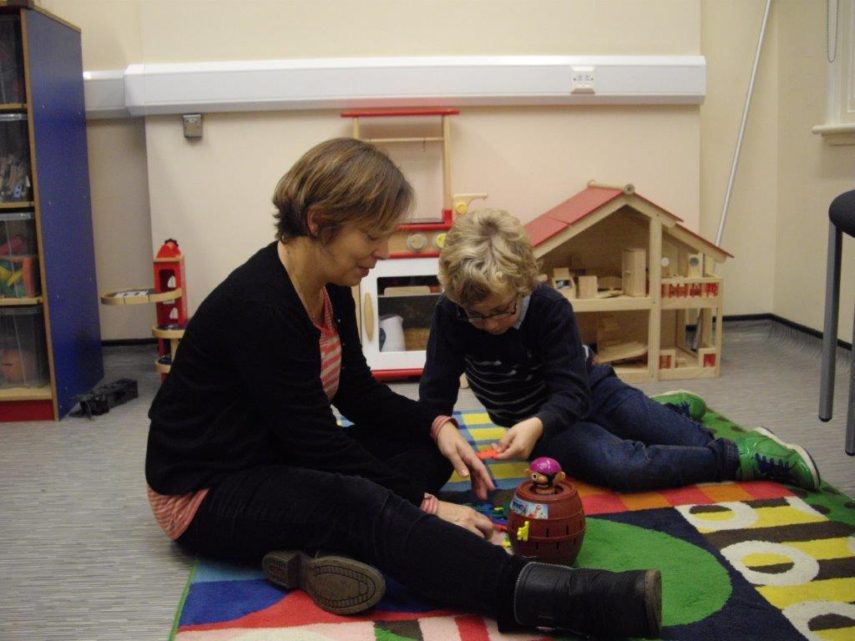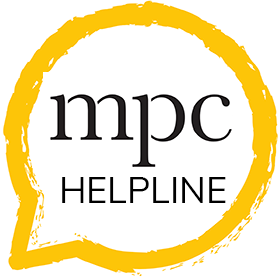
Top tips from the MPC
Are you a parent wanting to know how to help your son or daughter who stammers? Watch this 15-minute video from the Stuttering Foundation to find out 7 practical things that you can start doing right now to help your child.
Do you want help supporting your child during the Coronavirus pandemic? Go to YoungMinds, a UK charity working to support children and young peoples’ mental health, for thoughtful advice. Remember that your child may stammer more at the moment because of uncertainty, changes in routine or worry. Try to focus on and respond to what they need to communicate rather than how their fluency is.
What else can I do?
General wellbeing and routines
Think about your child’s general physical well-being, sleeping and eating. If your hunch is that your child needs more sleep then consider whether there are any changes that you could make to their routine that would mean that they get to bed a bit earlier. If you would like support with any area of parenting talk to your GP or speech and language therapist, or look for local parenting workshops.
Language model
Notice your child’s language and whether they use relatively sophisticated words and complex sentences. If your child is still young and they are using advanced language this puts pressure on their still-developing speech motor skills. If you tend to use grown-up vocabulary or long and complex sentences when talking with them it may help if you keep things a little more simple – just while their speech-motor skills are still developing.
Pace of life
What is the pace of life like in your household and is there a way to slow it down a little? Often family life is just busy and that’s just a fact of life – most parents will relate to that. But are there any times in the day when it gets really rushed and when it might be possible to do things a little differently to help everyone feel a bit more relaxed? Try thinking about one or two small, practical things that might take the time pressure off a little.
Remember
You are already, naturally, doing a lot that helps your child. You know your child better than anyone else and you instinctively tune in to what they need. Try doing just a little bit more of what you already do that seems to help.
Special Time

Special Time is a short, 5-minute play time that each parent or carer has with their child, 3-5 times a week. Go somewhere where you will not be disturbed, ask your child to choose something to play with and then play with them for 5 minutes.
Focus on really being present, giving your child your undivided attention. Listen to what they are saying rather than how they are talking.
Try practicing one the strategies that you have read about or that were talked about on the video (using more pauses when you talk, talking at a relaxed pace, not overdoing questions, really listening).
When the 5 minutes is finished thank your child for having a Special Time with you and then you can get on with other things, if you choose to.
Do special times with other children in the family so that things are fair. Older children or teenagers may not want to be offered ‘Special Time‘ but may appreciate being asked if they get enough of your time.
Is there anything I shouldn’t do?
Giving advice
Try not to say “slow down”, “think about what you want to say”, “calm down” or “take a deep breath.” It is extremely hard for children to slow down or remember to think (especially when they are excited about what they want to tell you) and taking a deep breath increases rather than decreases physical tension.
Although you are trying to help what children need to know most is that you are listening to what they are saying rather than how they are talking.
Reminding your child to use techniques
If your child has been introduced to fluency techniques in their therapy it may be tempting to remind them to use these. While your intention is to help, slowing down or changing anything to do with speaking is incredibly difficult and it is normal for children to not remember to do it or not be able to do it for long.
When reminded to use fluency techniques children can get the impression that they should not stammer, that you are displeased by it, or that there is something wrong with stammering. When children feel under pressure to be fluent this can contribute to them feeling ashamed or guilty about stammering as they grow older.
You might first ask your child whether they find it helpful to have a reminder (some do) or if they would rather you just listen to what they say (most prefer this). Most of all children need to know that parents are not bothered about their stammer and are interested in what they’re saying. This helps them feel good about themselves and confident about talking.
How should I talk about stammering with my child?
If your child is really unaware that they stammer then you don’t need to say anything about it. However, sometimes even very young children are aware at some level of having difficulty getting their words out and when this is the case it is important to find a way of talking about it together that feels natural and right for you.
Acknowledge stammering
If your child does say or do something that suggests that they are noticing it, or are reacting to a moment of stammering, then don’t be afraid to acknowledge it. Say something like “That got a bit sticky” (or bumpy) – don’t worry there’s no rush” in a warm but matter-of-fact way, just as you would if they were having difficulty with something else (like tying their shoelaces). This can be hugely reassuring for your child because it shows them that they are not alone and that you’re not bothered about it.
Use neutral language
It’s easy to end up talking about stammering in a subtly negative way and using language that suggests that being fluent is preferred. An example is saying to an older child “your speech has been really good lately” or asking “was it bad today?” Notice the language that you use and consider whether it has an unintended negative message. It is better to use neutral language. Talk about stammering more, or less, rather than speech being “bad” or “good.” This is to safeguard against children developing a sense that stammering is bad or is something about them that should be ‘fixed’.
My child speaks more than one language
Keep using both languages at home. Don’t worry if your child switches between languages – this is normal. The most important thing for a child is to hear a model of correct language structure (it does not matter which language) so you can speak to your child in your chosen language and it will be good for their language development.
I am still worried
Go to our get help page
Read about the MPC assessment clinic
Call the MPC helpline on 020 3316 8100

Sometimes you just need someone to talk to


Sometimes you just need someone to talk to
Our Helpline, 020 3316 8100, is open during office hours (9am-5pm) and voicemail messages can be left when the office is closed.
“I really appreciated watching videos of therapists in action and having the opportunity to shadow experienced clinicians.”
